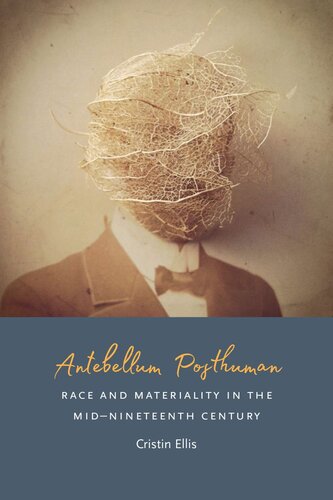

Most ebook files are in PDF format, so you can easily read them using various software such as Foxit Reader or directly on the Google Chrome browser.
Some ebook files are released by publishers in other formats such as .awz, .mobi, .epub, .fb2, etc. You may need to install specific software to read these formats on mobile/PC, such as Calibre.
Please read the tutorial at this link: https://ebookbell.com/faq
We offer FREE conversion to the popular formats you request; however, this may take some time. Therefore, right after payment, please email us, and we will try to provide the service as quickly as possible.
For some exceptional file formats or broken links (if any), please refrain from opening any disputes. Instead, email us first, and we will try to assist within a maximum of 6 hours.
EbookBell Team

4.1
100 reviewsFrom the eighteenth-century abolitionist motto “Am I Not a Man and a Brother?” to the Civil Rights-era declaration “I AM a Man,” antiracism has engaged in a struggle for the recognition of black humanity. It has done so, however, even as the very definition of the human has been called into question by the biological sciences. While this conflict between liberal humanism and biological materialism animates debates in posthumanism and critical race studies today, Antebellum Posthuman argues that it first emerged as a key question in the antebellum era.
In a moment in which the authority of science was increasingly invoked to defend slavery and other racist policies, abolitionist arguments underwent a profound shift, producing a new, materialist strain of antislavery. Engaging the works of Douglass, Thoreau, and Whitman, and Dickinson, Cristin Ellis identifies and traces the emergence of an antislavery materialism in mid-nineteenth century American literature, placing race at the center of the history of posthumanist thought. Turning to contemporary debates now unfolding between posthumanist and critical race theorists, Ellis demonstrates how this antebellum posthumanism highlights the difficulty of reconciling materialist ontologies of the human with the project of social justice.